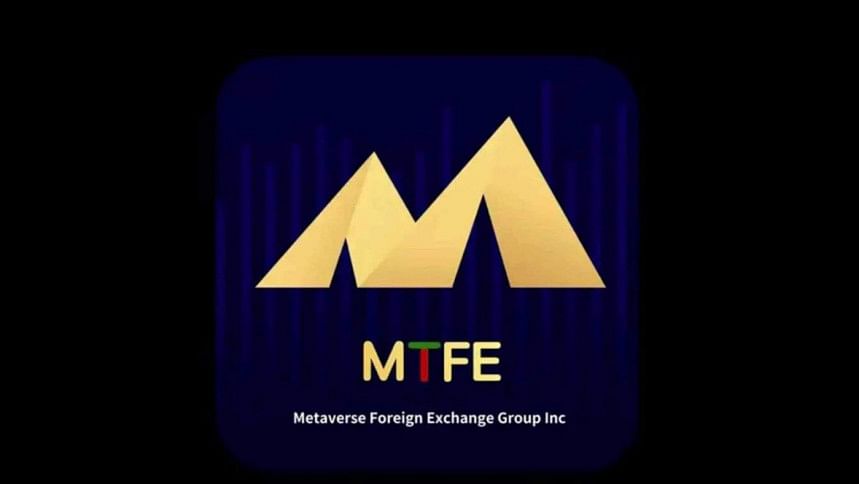Ponzi trading app ‘MTFE’ shuts down

It has the classic appearance of a Ponzi scheme: promising high returns to potential investors and offering unusually high returns on their investments in a short span of time.
Some participants do receive the promised returns until one day, the venture disappears into thin air, and with it, all the money invested.
The same thing happened to the Bangladeshi customers of MTFE, a so-called Dubai-based trading company, which has now stopped providing payment to investors. Now, hundreds of investors are fearing that they may lose a big amount of money.
MTFE introduces itself as a trading service provider for online investment in foreign exchange, commodities, stocks, stock indexes and other products.
According to the people who invest in the app, investors are enticed to contribute a set amount, divided into varying tiers. They receive a payout window of 3 days a week. To attract new participants, commissions are dangled as incentives.
One such customer is Comilla's Md Hasan, who is fearing losing about half of his investment.
About one and a half months ago, Hasan became acquainted with the app through a friend.
"It offered a $39 profit each week for investing $501. At the beginning of August, it suddenly stopped paying money. At that time, they told us that the app is under maintenance. But since Thursday, my balance in the app has turned to minus."
Like him, there are thousands of people in Comilla, Noakhali and Rajshahi who lost hundreds of crores, he said.
"I blame my lust for making 'short-cut' profit," he added.
Rahman, who refused to disclose his first name, said he was informed that he was investing in cryptocurrency.
"They claimed that they were utilising their intellect in crypto trading, while we were contributing with money. So, they retained 55 percent of the profit, allotting us 45 percent. These points were fabricated to lend credibility to their scheme and deceive us into falling for the scam," he added.
In recent years, such platforms, created with unscrupulous individuals and criminal networks, are capitalising on the anonymity and ease of online transactions to conduct illicit cross-border transfers, evading regulatory oversight and detection.
On August 9, the Bangladesh Financial Intelligence Unit (BFIU) in a statement said it noticed that illegal transactions facilitating cross-border payments and online gambling, betting and crypto trading have increased rapidly in recent years.
It decided to work with law enforcement agencies to tackle the menace.
BFIU representatives met with the Criminal Investigation Department of Bangladesh Police, the Cyber Crime Department of the Dhaka Metropolitan Police, the Bangladesh Telecommunication Regulatory Commission and the private sector in this regard that day.
BFIU chief Md Masud Biswas asked the representatives in the meeting to work together to combat illegal activities and take punitive measures against those involved.
The BFIU is interested in sharing intelligence with others to eliminate hundi, online gambling, betting, forex and crypto trading, he said.
According to several BFIU officials, money laundering has increased on the back of hundi and online gambling and this has appeared as a major concern.
However, questions are being raised about the effectiveness of government agencies' actions to combat these illegal Ponzi schemes and scams.
The exact amount of money that has been siphoned from Bangladesh through this latest scam remains uncertain, said AKM Fahim Mashroor, chairman of the BASIS standing committee on fintech and digital payment.
"However, there is a discernible rise in scams involving cryptocurrencies, MLMs and online ventures in recent years. Despite the need for vigilance, both law enforcement and BFIU failed to effectively oversee these illicit operations, resulting in capital flight. This has contributed to the ongoing forex crisis," he added.

 For all latest news, follow The Daily Star's Google News channel.
For all latest news, follow The Daily Star's Google News channel. 







Comments